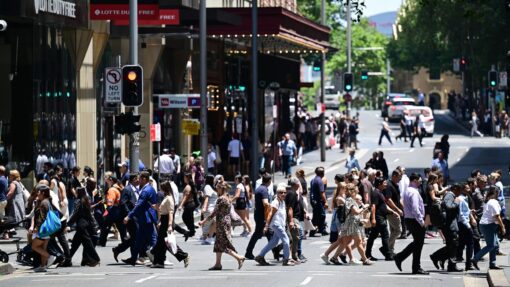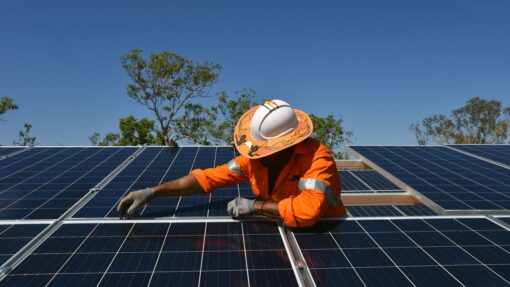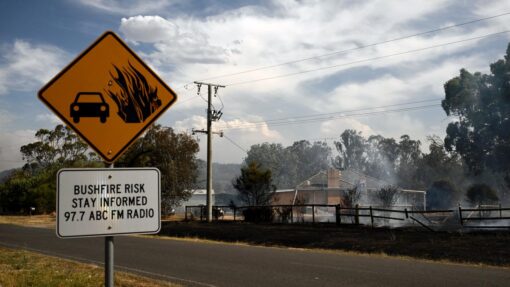Australia ‘not immune’ from global economic malaise
Poppy Johnston |
Australia appears on track to avoid a recession despite the nation’s outlook being downgraded and a stalling international economy.
The International Monetary Fund delivered a downbeat prediction for the global economy in its latest outlook, warning high inflation coupled with financial system turmoil could bring near-recession conditions.
Treasurer Jim Chalmers said neither Treasury nor the Reserve Bank were expecting Australia to slip into recession but the economy was forecast to slow.
“We are better placed than most countries because of lower unemployment, because of the prices we’re getting for our exports and some of the other advantages we have,” he said.
The International Monetary Fund predicted Australia’s GDP growth would stall to 1.6 per cent this year, followed by a 1.7 per cent lift in 2024.
The forecasts were slightly ahead of those for the US and Canada, while the UK economy was expected to shrink.
Dr Chalmers said each nation had its own combination of economic challenges.
“But as the IMF points out, we won’t be immune from a global slowdown,” he said.
Speaking at the Western Economic Association International conference in Melbourne, Reserve Bank deputy governor Michele Bullock commented on the relationship between interest rate settings and financial instability concerns.
Ms Bullock said the central bank had already been thinking about hitting pause before the collapse of the Silicon Valley Bank.
She said central banks such as the Federal Reserve in the US were mindful that financial instability could cause a general tightening in financial conditions, which meant they could do a little bit less.
But in Australia, there were no indications of tightening conditions at the moment as the banking sector was rigorously regulated.
“There is no sign that there’s any tightening in financial conditions because people are worried about the banks or runs on the banks,” she said.
“There doesn’t seem to be the Australian banks reacting in any way to tighten financial conditions either.”
Ms Bullock said the Reserve Bank decided to hit pause on interest rates after 350 basis points of tightening in “quick time”.
“In other tightening cycles, we typically move a bit, and then we stop and watch, we move a bit, but we had to get from emergency low levels, remove all of that stimulus, and get into the restricted territory.”
She said monetary policy was now in restrictive territory, as evidenced by the housing downturn, softening in retail sales and other data points, and it was now appropriate to “stop for a minute and watch”.
Liberal deputy leader Sussan Ley said the government needed to focus on cost-of-living pressures in its May budget to counter the worst of rampant inflation.
“There’s no plan for tackling inflation when we wake up to news of a deteriorating economic environment both nationally and internationally,” she said.
AAP


